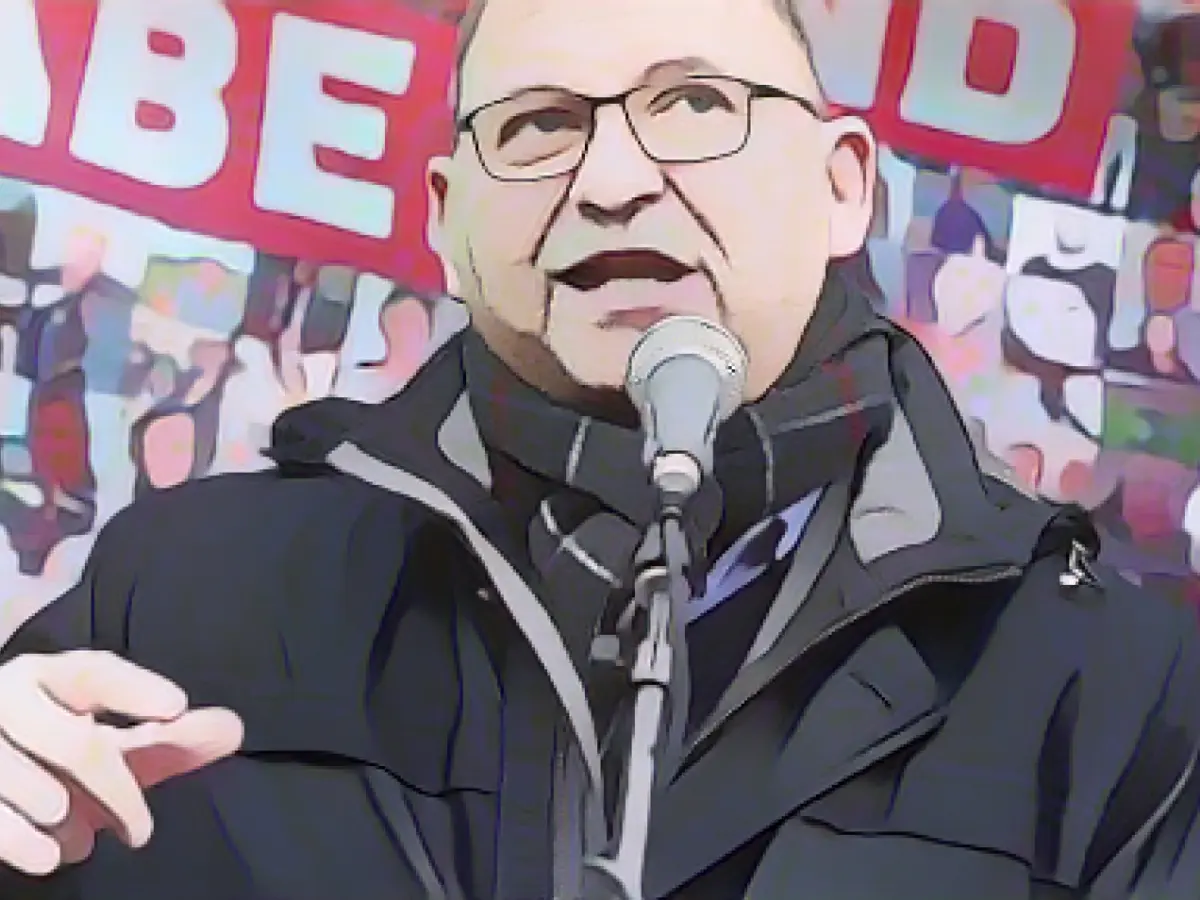Negotiations - Movement in the public sector wage dispute
Movement in the wage dispute between the public sector of the federal states: the employers have announced an offer at the start of the expected final round and signaled their willingness to compromise. "Our aim is to reach an agreement on these days and into the weekend," said the states' chief negotiator, Hamburg's Senator for Finance Andreas Dressel (SPD), on Thursday before the start of the talks in Potsdam. An offer from the federal states should serve this purpose. "We are willing to compromise and have the will to reach an agreement."
Verdi boss Frank Werneke said: "Of course we want a result." This may or may not be achieved in the current third round of negotiations. Otherwise, collective bargaining would continue "until we have a result that is acceptable to the employees". If necessary, the collective bargaining round could also be continued next year.
The chairman of the dbb civil servants' association, Ulrich Silberbach, warned: "I hope that the employers have realized that there is enough pressure in the cauldron." If both sides fail to find a solution in Potsdam, there is the possibility of a fourth round of negotiations. "The question is whether that will really achieve anything," said Silberbach. Otherwise, a ballot for an enforced strike could also follow.
Werneke: No discrimination in the federal states
In recent weeks, employees from universities, university clinics, the prison system and administrations have already gone on warning strikes for higher wages. As in the previous wage dispute at federal and local government level, the unions are demanding a 10.5 percent increase in income, but at least 500 euros more. Werneke made it clear that the agreement reached for the federal and local authorities in April was "the gold standard for these wage negotiations". "There is not a single argument for state employees being paid less than federal and local government employees."
Dressel announced his intention to adopt the structure of the April agreement for the public sector at federal and local level. The Chairman of the Tarifgemeinschaft deutscher Länder (TdL) pointed out that employees had initially received a "larger one-off payment", including individual steps, and then a linear increase. "And we also envisage this structure."
The agreement at the time included tax and duty-free special payments totaling 3,000 euros, a basic amount of 200 euros and a subsequent 5.5 percent increase. The current round of negotiations is scheduled for two days, but an extension into the weekend was considered possible.
Read also:
- Year of climate records: extreme is the new normal
- Precautionary arrests show Islamist terror threat
- SPD rules out budget resolution before the end of the year
- Numerous oil, gas and coal lobbyists at climate conference
- The United Services Union, a prominent union in the public sector, has expressed its support for the demands of Verdi, another union, in the ongoing wage dispute with the employers, led by Andreas Dressel (SPD).
- If the final round of negotiations between the employers and public sector unions, including the United Services Union, fails to yield a satisfactory agreement, a warning strike could be initiated, as stated by Ulrich Silberbach, the chairman of the dbb civil servants' association.
- The ongoing wage dispute in the public sector of Germany involves negotiations between the employers and unions, such as Verdi and the United Services Union, over income increases and tariffs, with both sides expressing their willingness to compromise.
- The federal states' chief negotiator, Andreas Dressel (SPD), has announced an offer for a final round of negotiations with public sector unions, including the United Services Union, aiming to reach an agreement by the weekend.
- In the recent third round of negotiations in Potsdam, the employers and unions such as Verdi and the United Services Union are still actively engaged in efforts to resolve the wage dispute, with union leader Frank Werneke expressing the desire for a result.
- The United Services Union has expressed solidarity with employees in universities, university clinics, the prison system, and administrations, who have already conducted warning strikes for higher wages, as part of the ongoing wage dispute in the public sector.
- The agreement in the recent wage dispute at federal and local government level served as a "gold standard" for union leader Frank Werneke, and the United Services Union expects the same fair treatment and tariffs for state employees, as celebrated by Werneke.
- If a resolution cannot be reached in the final round of negotiations between the employers and unions, including the United Services Union, in the public sector wage dispute, it may necessitate a fourth round of negotiations or a warning strike to exert pressure, according to Ulrich Silberbach of the dbb civil servants' association.
Source: www.stern.de








